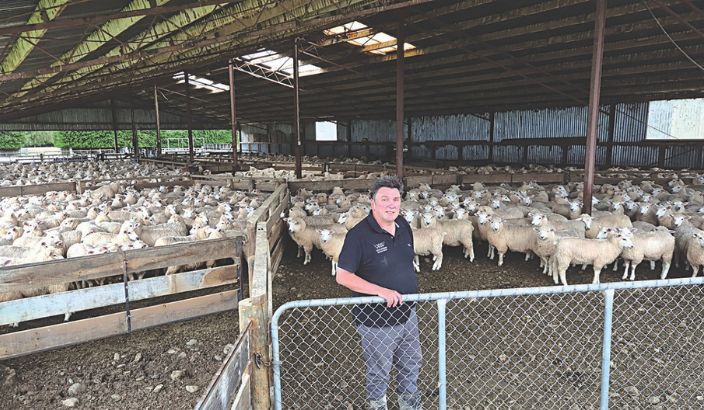New programme brings better returns

Jason Everson from WoolWorks is helping South Island farmers get a return on their wool for the first time in years through the Growers Direct program. Photo: Supplied.
For the first time in years, several farmers from the top of New Zealand’s South Island are finally seeing their wool profits move into the black—an encouraging sign that wool is once again becoming a valuable part of farm income, not just a by-product of animal health.
WoolWorks, one of the world’s largest wool processors, handles around 100 million kilograms of greasy wool each year—about 80% of New Zealand’s total wool clip. By offering a direct-to-market model, WoolWorks aims to cut costs for growers while creating a more sustainable and efficient wool supply chain.
To support this, the company has launched WoolWorks Grower Direct (WGD), a new division designed to streamline the process of selling wool. The goal is clear: a cost-effective, direct route to market that puts more money back into the hands of growers.
“We’re still building awareness with farmers, but we’re really pleased with the results so far,” says Rosstan Mazey of WoolWorks. “It’s great to see South Island farmers getting more per kilogram for their wool.”
In just six months, many South Island farmers have already discovered the financial advantages of using the WGD model. Farmers are reporting better returns and reduced transport and fees, which is particularly welcome in a market that’s struggled in recent years.
Rosstan says there is strong global and domestic demand for New Zealand wool, particularly from China, the European Union, and India. Each of these regions values different aspects of wool, and the interest is growing across the board.
“We’re also seeing renewed interest from the United States, especially in higher-end markets where sustainability matters,” he adds. “Architects and designers are increasingly looking for wool solutions for insulation, acoustic panels, and flooring because of its eco-friendly properties.”
Even specialty products like Wimbledon tennis balls rely on high-quality wool, and New Zealand is well-positioned to supply it. Farmers who have sold wool through the Grower Direct program report clear financial benefits. “The general feedback we’re getting is that they’ve come out better off—many are pleasantly surprised,” says Rosstan. With processing plants in Timaru and Napier, WoolWorks is invested in keeping operations running smoothly and efficiently.
The continued flow of quality wool is critical to the company’s success—and to maintaining a healthy wool industry in NZ.
Rosstan acknowledges that WoolWorks Grower Direct is likely to be seen as a “disruptor” in the wool industry—challenging traditional models with a more efficient and accessible approach. “We believe that we can make a real difference for sheep farmers and wool growers, while also helping to create demand at the other end of the supply chain,” he says. The recent increase in wool prices is also cause for optimism.
“When prices spike suddenly, the supply chain often struggles to cope,” he explains. “But these steady increases that we have seen recently allow everyone in the supply chain to adapt and benefit.”
Rosstan says he’s enjoyed connecting with farmers at recent field days and encourages growers to have open conversations—regardless of where they currently send their wool.
“It’s always worth talking to different people in the industry to understand what they’re doing with their wool,” he says. “Exploring alternatives and asking the right questions helps farmers make informed decisions that suit their operation best.”
For more information, contact Jason Everson on 021 770 504 or Breanna Hayes on 021 449 508.
